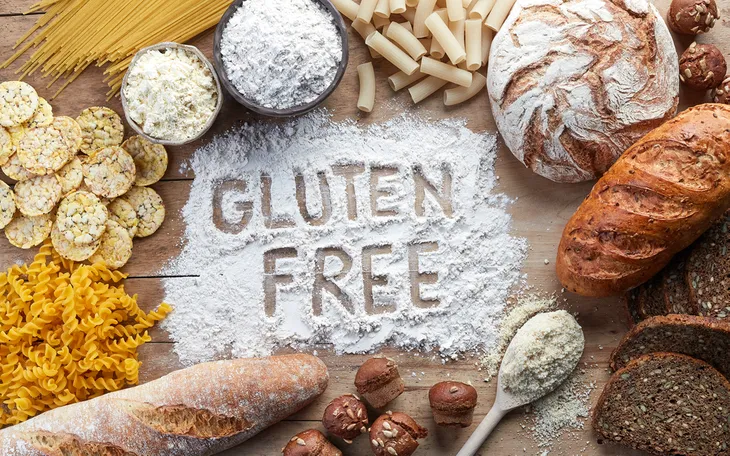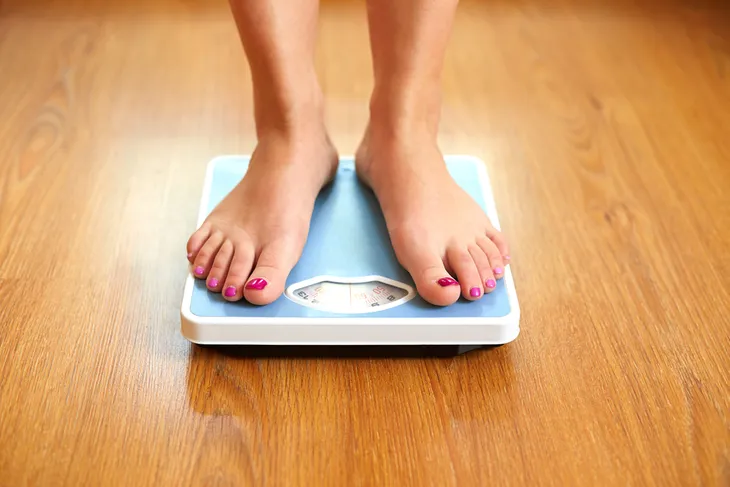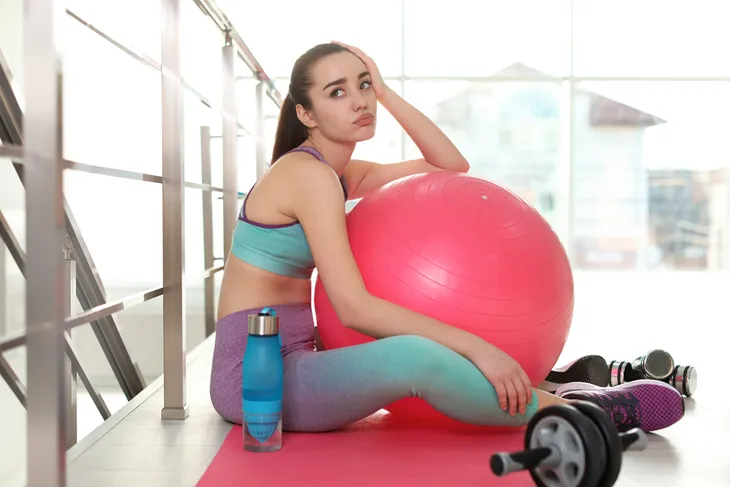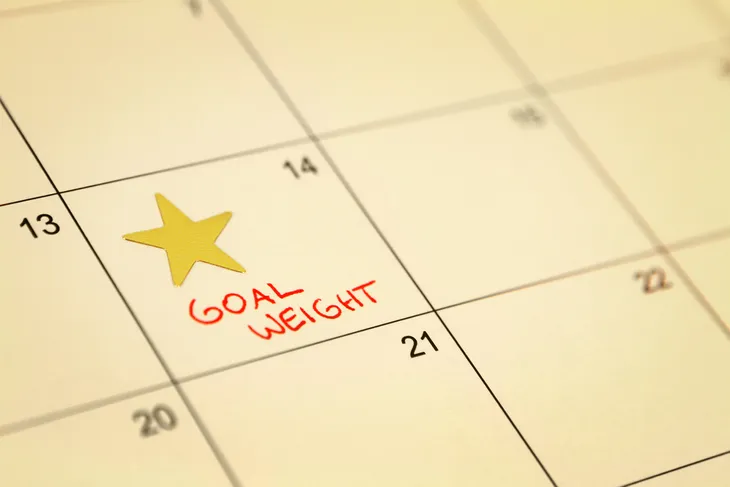- People have been making New Year’s resolutions for years but many ditch them after a short while.
- Health and fitness resolutions often fail because they’re too restrictive or unrealistic.
- Many people also don’t make actionable plans to meet their goals, which is a recipe for frustration.
- Before you set your goals this year, be wary of these diet and fitness resolutions.
People have been making New Year’s resolutions for decades, even centuries, but many fail to actually see them through. While some people may simply lack the motivation and willpower, others set themselves up for failure before they even start. The most common culprit for failure is making unrealistic, massive goals without an actionable plan.
While you may be tempted to set extravagant goals, such as working out every day or losing 30-pounds in a month, it’s important to actually invest quality thought into your goals. Don’t fall into these New Year’s resolutions traps! Follow along as we look into some of the worst diet and fitness New Year’s resolutions that you’re better off avoiding.
Following a Fad Diet
We’ve all seen tons of fad diets over the years and while they may promise quick results (and work in the short term), most fad diets set you up for failure. This is because they are way too restrictive. Fad diets also turn many people into yo-yo dieters, meaning you’ll start the diet, get fed up, try another one, get fed up, and the cycle repeats. This can also result in a pattern of weight loss and weight gain over and over again.
A more attainable and realistic New Year’s resolution is to make a goal of finding a healthy balance when eating. This may be the less attractive option, but choosing balance and variety in your diet is really key to a healthy body. Portion control and focusing on fresh produce and lean protein and avoiding processed foods when possible can really go a long way.
Banning Carbs for Good
Many people associate carbs with weight gain, which is why it’s a common resolution to ban carbs for good. Sure, simple carbs like donuts, white bread, and sugary breakfast cereals don’t have much nutritional value and may lead to weight gain if eaten too often, but some carbs are still necessary. Gisela Bouvier, a registered dietitian nutritionist in Port Charles, FL tells Prevention that carbs are “an essential part of our diets, as they are our bodies’ main fuel source.”
Like most fad diets, low-carb and carb-free diets may lead to weight loss but it isn’t sustainable. The source explains, “when we don’t eat carbs for a prolonged period of time, our glycogen stores become depleted and our bodies eventually start to burn fat for energy, in a process called ketosis.” When ketones build up in the body, side effects can occur, such as headaches, dizziness, nausea, and high cholesterol. Again, it’s better to find a healthy balance and opt for healthy carbs like whole grains, vegetables, fruit, and beans.
Banning All “Bad” Foods
Another common resolution is to ban all junk food. Making healthy eating goals is great but taking an all-or-nothing approach is not the way to go. Men’s Journal points out that when you restrict yourself from foods you enjoy, you’re more likely to overindulge and ditch your resolution altogether.
Delicious indulgences, whether it’s sweet or salty snacks, should be enjoyed in moderation. A healthier goal for the new year would be to follow the 80/20 rule which means 80-percent of your calories are from nutrient-dense foods and 20-percent of your calories are from foods you consider indulgent.
Restricting Meals to Eat Less
How many times have you heard someone say they skipped breakfast or lunch because they’re trying to lose weight? Restricting meals is another common resolution that we are better off avoiding.
Prevention explains that when you restrict calories all day, your brain goes into famine mode. Over time, this can actually have the opposite effect of what you’re hoping to achieve and slow your metabolism. In turn, this may actually lead to weight gain.
Your body is smart, and when you restrict food, the body will store more fat once you eat to prepare for “future calorie shortages,” explains the source. Instead of restricting meals, consider making a goal of focusing on portion control instead.
Going Gluten-Free
A gluten-free diet can be beneficial and imperative for people with celiac disease or a gluten intolerance or sensitivity, but those who don’t won’t really benefit from it. Caroline Apovian, MD, director of the Nutrition and Weight Management Center at the Boston Medical Center tells Prevention that whole grains are rich in fiber and are usually more satiating than other gluten-free foods.
Additionally, the source notes that many gluten-free products lack vitamins and minerals and often contain more calories and sugar. If you don’t have a sensitivity to gluten, the healthier approach is to swap some grains for lean protein and vegetables instead of gluten-free packaged foods.
Promising to Work Out Every Day
Every January, gyms see an influx in memberships and this is often due to resolutions. Many people set out to work out every day only to ditch the gym altogether a month later. So if you’re thinking about adding this goal to your list, think again!
Exercise is essential for your health, but if you’re rarely active and set a goal to work out daily, then you’re likely setting yourself up for failure. It’s important to set fitness goals that are attainable and based on your current fitness levels. A healthier goal is to commit to working out for 30-minutes to an hour, three times a week. Once you hit this goal, then you think about setting more challenging resolutions next.
And don’t forget, you don’t have to go to a gym to work out. At-home workouts, walking, swimming, and playing sports are all great ways to get your body moving.
Working Out for the Sole Purpose of Losing Weight
Another fitness goal mistake many people make is wanting to work out for the sole purpose of losing weight. Sure, exercise can contribute to weight loss but it’s more complex than that. Exercise won’t be beneficial for weight loss unless you adjust your dietary habits too. Managing stress can also play a role. A healthy diet (and mind) as well as a good exercise program can work in unison to help you achieve your weight loss goals.
A healthier mindset would be setting goals to work out for your overall health, not just weight loss. Exercise has a lot to offer. The Cleveland Clinic says exercising regularly can improve your mood, energy levels, sleep, and mental health. It can also help improve your bone health, and cardiovascular health, and reduce your risk of chronic diseases (such as type 2 diabetes).
Committing to the Same Fitness Plan Every Day
Much like committing to the gym every day, you should also avoid committing to the same fitness plan every day. If you want to stick to your fitness goals, it’s best to focus on variety, especially if you’re new to working out. Following the exact same plan, every day can lead to boredom, and over time, you may ditch your fitness goals entirely.
Instead, try to build a fitness plan that offers variety. It’s also more beneficial for your body to focus on a different body part each day, especially when you’re strength training. You can also switch up the type of training you do, such as resistance training one day and cardio another. If you don’t know where to start, consider hiring a personal trainer.
Losing a Certain Number of Pounds
Weight loss is arguably the most common New Year’s resolution. And while it may be a healthy goal for some people, setting a goal of a specific number of pounds is not the way to go. Firstly, it’s not healthy to fixate on the number on the scale. Your weight can fluctuate daily based on a number of factors and it’s also possible for the scale to go up, especially if you’re working out. This is because muscle weighs more than fat. Seeing the scale fluctuate often can be very discouraging and may cause you to ditch your goals.
A healthier approach is setting goals of making small, realistic lifestyle changes. This may include exercising, changing your dietary habits, and managing your stress. All of these goals will work together to make you healthier and as a result, the scale will likely “take care of itself,” says Prevention.
Taking a Ton of Vitamins to be Healthier
Navigating the supplement aisle can be overwhelming as there are tons of vitamins to choose from. Before you make a goal to start taking a bunch of vitamins to be healthier, there are some things to consider.
Arielle Levitan, MD, co-founder of Vous Vitamin, and co-author tells Eat This, Not That, that making resolutions to take large quantities of vitamins is not a good idea because it’s not realistic, and in some cases, not healthy. Firstly, taking a handful of vitamins every day is not pleasant. Secondly, it’s important to take a personalized approach by finding out what you actually need. Just because your friend is taking 5 vitamins doesn’t necessarily mean you need them too. It’s important to work with your doctor to find out which vitamins are best for you. Sometimes all you need is a multivitamin, which means you’ll only need to take one or two a day.
Making Too Many New Year’s Resolutions
Another common pitfall of New Year’s resolutions is making too many. Many people feel ambitious and eager to better themselves, especially at the start of a brand new year. However, making too many resolutions and trying to change too many aspects of your life can set us up to fail.
The healthier approach is to focus on one or a couple of goals at a time. As you achieve your goals then you consider setting more challenging goals or goals in other areas of your life.
Starting on January 1
Another common mistake people make when setting resolutions is waiting to start on January 1. Popsugar Fitness explains that, though resolutions are all about starting at the beginning of January, it’s a big clichè, and sometimes it can “feel like you’re doing it because you’re supposed to, not because you want to.”
To be able to accomplish goals, you have to be in the right mindset. If you’re eager and ready to start crushing goals now, don’t wait and get started. There’s also no harm in starting in the middle of January or really, any time of the year. The important thing is that you’re taking steps to better your health — when you start the journey doesn’t matter at all.















